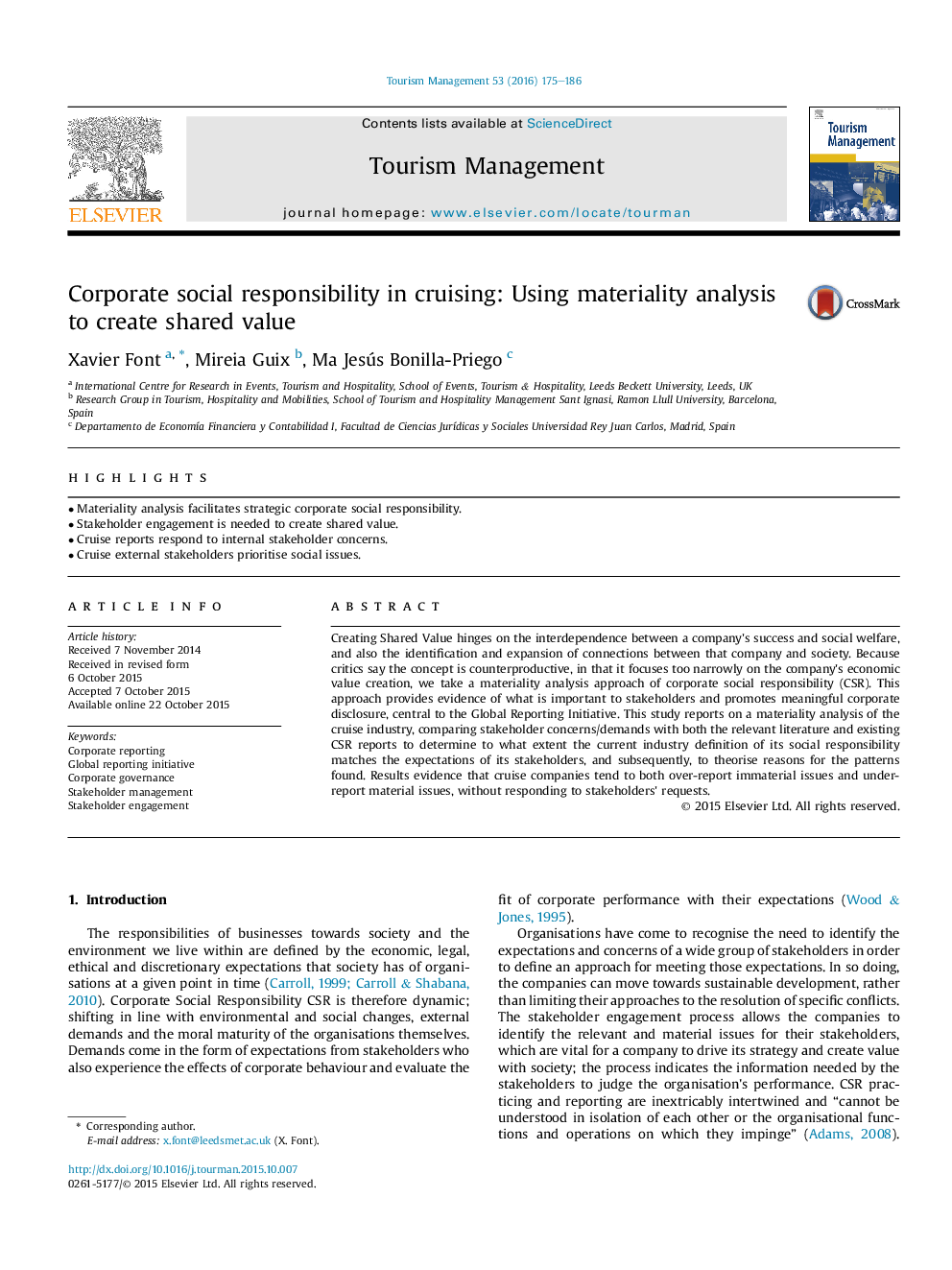| Article ID | Journal | Published Year | Pages | File Type |
|---|---|---|---|---|
| 1011844 | Tourism Management | 2016 | 12 Pages |
•Materiality analysis facilitates strategic corporate social responsibility.•Stakeholder engagement is needed to create shared value.•Cruise reports respond to internal stakeholder concerns.•Cruise external stakeholders prioritise social issues.
Creating Shared Value hinges on the interdependence between a company's success and social welfare, and also the identification and expansion of connections between that company and society. Because critics say the concept is counterproductive, in that it focuses too narrowly on the company's economic value creation, we take a materiality analysis approach of corporate social responsibility (CSR). This approach provides evidence of what is important to stakeholders and promotes meaningful corporate disclosure, central to the Global Reporting Initiative. This study reports on a materiality analysis of the cruise industry, comparing stakeholder concerns/demands with both the relevant literature and existing CSR reports to determine to what extent the current industry definition of its social responsibility matches the expectations of its stakeholders, and subsequently, to theorise reasons for the patterns found. Results evidence that cruise companies tend to both over-report immaterial issues and under-report material issues, without responding to stakeholders' requests.
